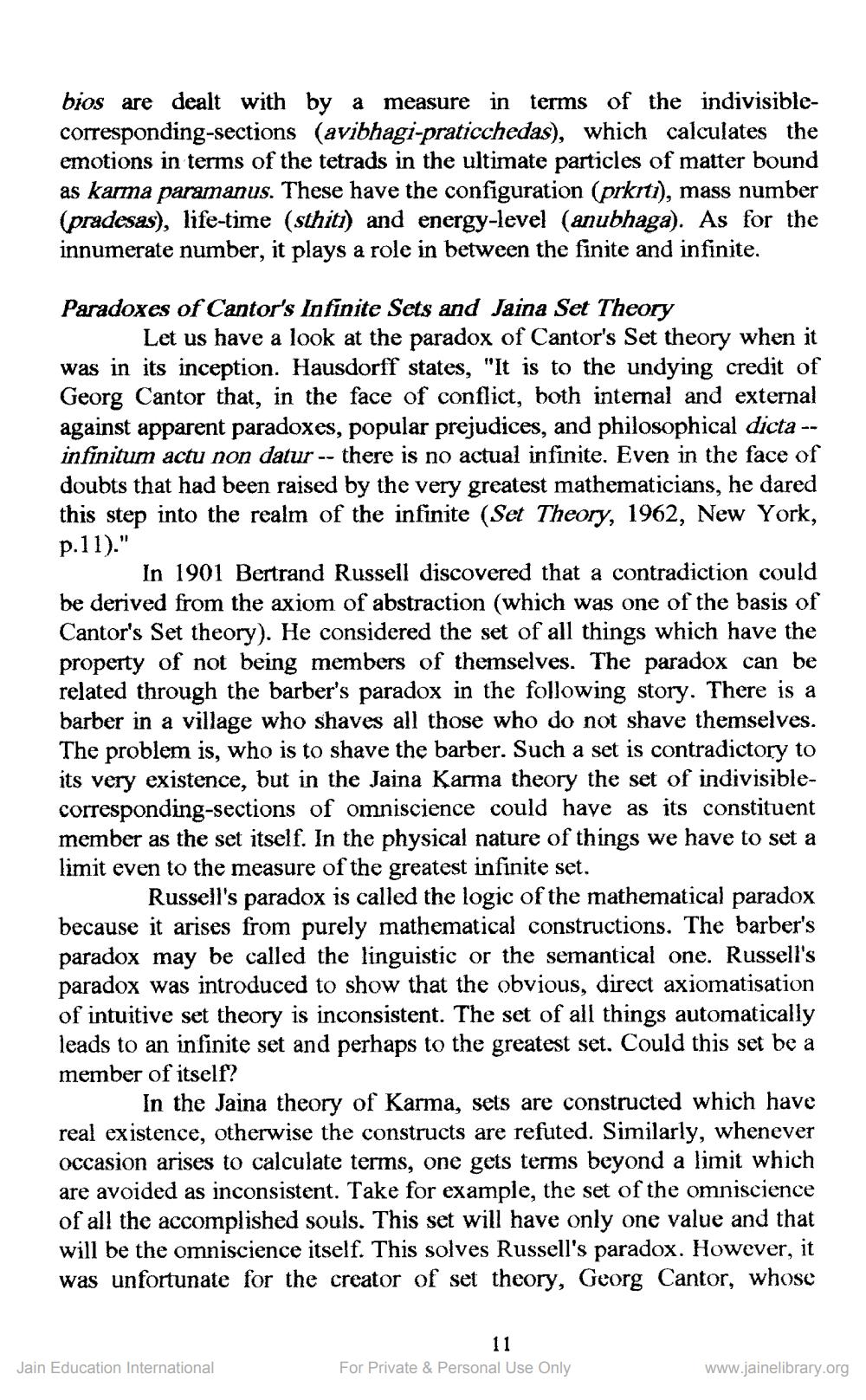________________
bios are dealt with by a measure in terms of the indivisiblecorresponding-sections (avibhagi-praticchedas), which calculates the emotions in terms of the tetrads in the ultimate particles of matter bound as karma paramanus. These have the configuration (prkrti), mass number (pradesas), life-time (sthiti) and energy-level (anubhaga). As for the innumerate number, it plays a role in between the finite and infinite.
Paradoxes of Cantor's Infinite Sets and Jaina Set Theory
Let us have a look at the paradox of Cantor's Set theory when it was in its inception. Hausdorff states, "It is to the undying credit of Georg Cantor that, in the face of conflict, both internal and external against apparent paradoxes, popular prejudices, and philosophical dicta -- infinitum actu non datur -- there is no actual infinite. Even in the face of doubts that had been raised by the very greatest mathematicians, he dared this step into the realm of the infinite (Set Theory, 1962, New York,
p.11)."
In 1901 Bertrand Russell discovered that a contradiction could be derived from the axiom of abstraction (which was one of the basis of Cantor's Set theory). He considered the set of all things which have the property of not being members of themselves. The paradox can be related through the barber's paradox in the following story. There is a barber in a village who shaves all those who do not shave themselves. The problem is, who is to shave the barber. Such a set is contradictory to its very existence, but in the Jaina Karma theory the set of indivisiblecorresponding-sections of omniscience could have as its constituent member as the set itself. In the physical nature of things we have to set a limit even to the measure of the greatest infinite set.
Russell's paradox is called the logic of the mathematical paradox because it arises from purely mathematical constructions. The barber's paradox may be called the linguistic or the semantical one. Russell's paradox was introduced to show that the obvious, direct axiomatisation of intuitive set theory is inconsistent. The set of all things automatically leads to an infinite set and perhaps to the greatest set. Could this set be a member of itself?
In the Jaina theory of Karma, sets are constructed which have real existence, otherwise the constructs are refuted. Similarly, whenever occasion arises to calculate terms, one gets terms beyond a limit which are avoided as inconsistent. Take for example, the set of the omniscience of all the accomplished souls. This set will have only one value and that will be the omniscience itself. This solves Russell's paradox. However, it was unfortunate for the creator of set theory, Georg Cantor, whose
11 For Private & Personal Use Only
Jain Education International
www.jainelibrary.org




